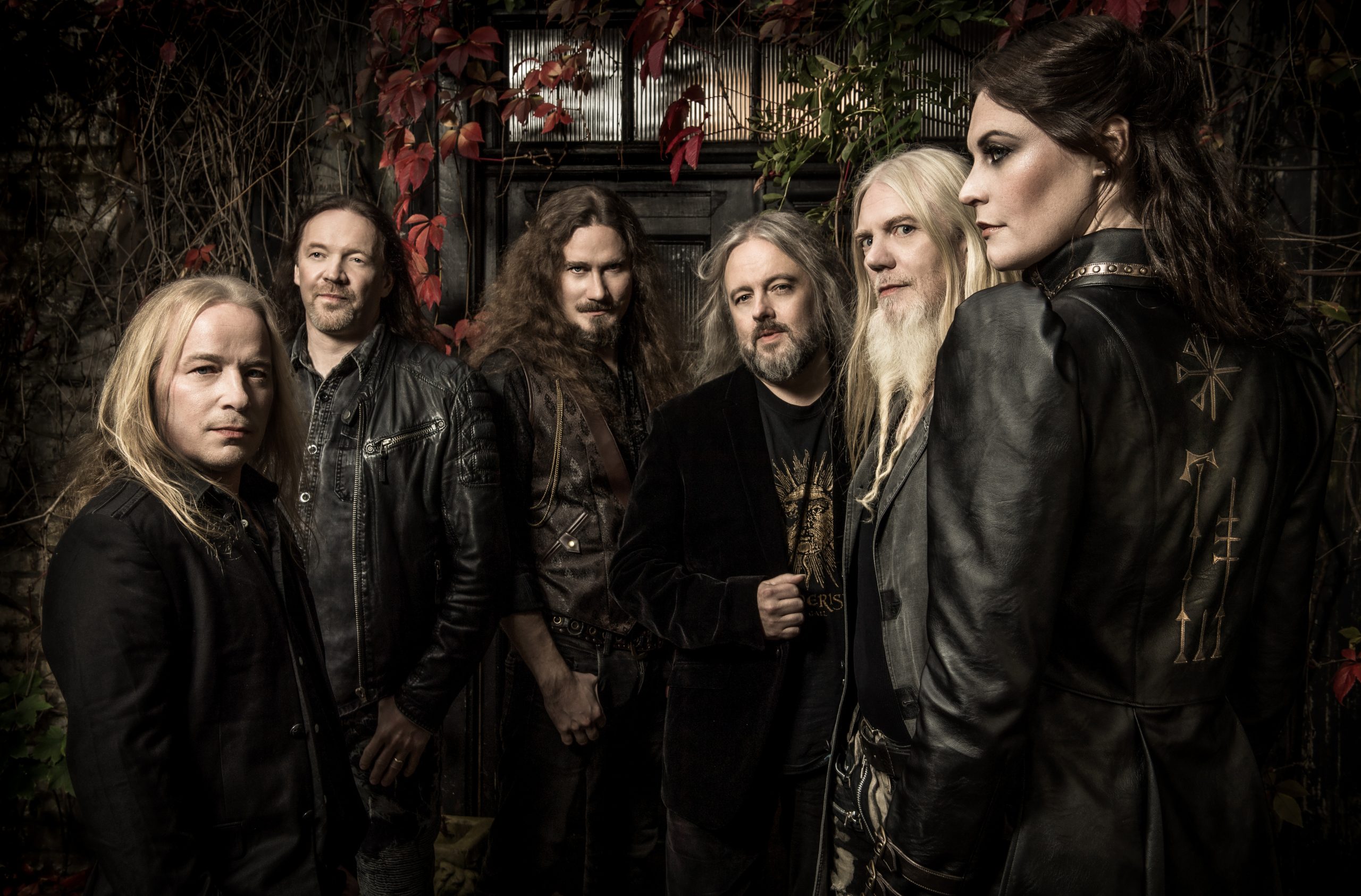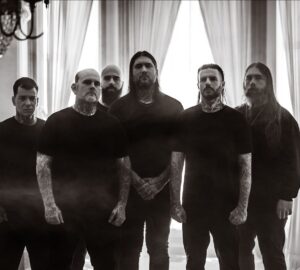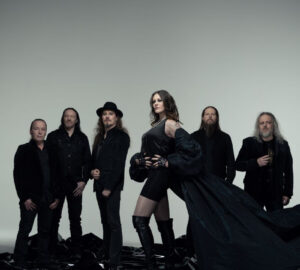Photo Credit: Tina Korhonen
Nightwish have been among the pioneers of the symphonic metal sub-genre since they first became a band in a small town in Finland, almost 25 years ago. Now, in 2020 and a good five years since the release of their last album, 2015’s Endless Forms Most Beautiful, they have returned in style, with lead vocalist Floor Jansen’s second studio album: HUMAN. :II: NATURE.
Presented as a double album, this 80-minute package is split in two parts: the first one, Human, is essential Nightwish at its best, with the band flexing their musical talent, while the second part, Nature, is an orchestral opus split into eight parts: All The Works of Nature Which Adorn the World. This constant duality between humanity and nature stands at the core of the record, even being found in its artwork, which bears cuneiform glyphs representing the Assyrian and Sumerian words for “human” and “nature”, respectively.
Music quite literally kickstarts the first part: with the hit of a hammer, sounding as if it belonged on a soundtrack for a medieval / fantasy film (Lord of The Rings, for example). Before long, more and more instruments start to chime in, from percussive, tribal drums and war horns, to operatic choirs, Troy Donockley’s Uilleann pipes and e-bowed guitars. Noise, the first single, offers what one could call a critique on modern society, its lyrics drawing inspiration from the hit TV show Black Mirror (“Your mirror is black”), all the while being heavier and much more driven than its predecessor.
Shoemaker veers into folkier territory for its intro, featuring what sounds almost like a harpsichord, before Emppu Vuorinen’s electric guitars turn the track heavy again, then finishing with a goosebump-inducing operatic performance courtesy of Jansen. On the flipside, Harvest sees Donockley playing some mandolins here and there – what can’t he do? – and taking over the vocals (something previously heard on My Walden, where he offered a Welsh verse). It ends up sounding like a cross between a Eurovision song, and something that was taken off the Lion King soundtrack, in the most Nightwish way possible, before Vuorinen’s guitar and Donockley’s pipes reel everything back in with a dual solo.
Pan is replete with sinister melodies, double-bass drum runs from Kai Hahto, and Marko Hietala’s ever-present, rumbling bass playing, and How’s the Heart?’s opening heartbeat explodes into a belter of a track, kicked off once again by those Uilleann pipes. The Stranger Things-inspired Procession features what Tuomas Holopainen calls “Floor Jansen’s most touching performance ever” and also sees Donockley play the flute – yet another instrument in his wide arsenal. The second to last track, Tribal is definitely among the heavier ones on offer, with some of Jansen’s most aggressive vocals on the whole album, while the others take part in some gorilla-esque grunting, all the while being backed by an intense exotic percussion section. Endlessness closes everything with Hietala as the lead vocalist, as well as some of the most gothic soundscapes heard in recent memory, before slowly making way for the orchestra on part number two.
Finally, it is time for the second, closing part of HUMAN. :II: NATURE. – All The Works of Nature Which Adorn the World. Its eight parts take you on a classical journey, starting with a monologue which really drives home the fact that this whole suite is, in fact, Holopainen’s ‘love letter to our world’: “I love not men less, but nature more.” As Vista starts, you can’t help but close your eyes and let yourself be transported by Holopainen and orchestral arranger Pip Williams’ compositions, and the London Session Orchestra’s wonderful performance which is topped off by Floor Jansen’s soprano vocals throughout, as well as the Uilleann pipes that pop up during The Moors. It all comes to an end in the last of the eight chapters, Ad Astra, closing with the same voice heard in Vista, reciting a fitting quote from Carl Sagan, before the orchestra leads into a grand crescendo. The only downside to this 30-minute+ suite is that, due to its classical, orchestral nature, a lot of people will end up listening to it much less compared to its electric counterpart. It’s not for everyone, sure, but it’s still a shame.
To sum up, HUMAN. :II: NATURE. might prove to be the Finns’ most progressive release to date – it definitely is the most symphonic. To some, the discrepancy between the two parts may seem like a “let down”, while to others it may be just what they had been waiting for from Nightwish.
8.5/10
Standout Tracks: Noise, Harvest, How’s The Heart?, Music, Shoemaker
For Fans Of: Within Temptation, Epica, Therion, Delain, After Forever
Written by: Florin Petrut





